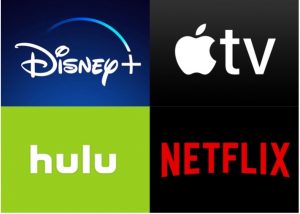 The need for journalism about documentary filmmaking has never been greater, but this work is underfunded, undervalued, too little, and too white, according to a new CMSI report, The State of Journalism on the Documentary Filmmaking Scene. A big part of the problem is that documentary filmmakers have never established any standards.
The need for journalism about documentary filmmaking has never been greater, but this work is underfunded, undervalued, too little, and too white, according to a new CMSI report, The State of Journalism on the Documentary Filmmaking Scene. A big part of the problem is that documentary filmmakers have never established any standards.
Raising the Alarm
In an interview about his most recent film Roadrunner (2021), director Morgan Neville cheerfully revealed that he used artificial intelligence to recreate the voice of Anthony Bourdain. Was this a harmless use of contemporary technology to create a reenactment? Or did the director’s decision

Morgan Neville faked the voice of Anthony Bourdain in his film *Roadrunner.*
overstep an unspoken ethical boundary? How common is this, and what other fakery and trickery has been hidden from us in this and other films?
We don’t know. Journalists briefly raised the question, and some pointed fingers at Neville but the industry shrugged–just as Neville predicted. And Roadrunner became a hit.
This was just the latest news to remind us that a powerful storytelling medium, legitimized by its claims to truth and authenticity, is largely opaque and unaccountable.
The latest Center for Media & Social Impact study, resulting from interviews and meetings with 66 journalists, editors, curators, academics and funders, assesses the information ecology about documentary that is fueled by journalism. The State of Journalism on the Documentary Filmmaking Scene identifies major problems, and charts next steps for greater accountability.
It received funding from American University and the Ford Foundation, although neither entity had any say in the research design or results.
Shortages Abound
Documentary has gained major traction with audiences across the globe in recent years. At the same time, journalism has been on the decline. Newsrooms across the country continue to shrink or disappear, and with budgets go the beats and expertise that solid journalism depends on. Furthermore, arts

Streamers have added to the commercial pressures, while no documentary ethics standards exist.
journalism has always been uncomfortably close to public relations for the movie business. And it’s always skewed white. Finally, there’s little public data on the documentary business, and that’s much worse with the rise of streamers.
Critics often find they have to take a documentary’s claims on face value, or plunge into a reporting and fact-checking project that far exceeds their deadline. Some never got any background on how to analyze the documentary form.
Criticism also skews white. We found a systemic lack of support and opportunity for BIPOC writers and other less heard voices.
In a world where journalism has to depend on marketplace incentives, journalism about documentary is an example of market failure.
The Missing Piece
But the biggest issue of all, in the all-too-fragile environment for journalism about documentary filmmaking, is that the documentary field has never created a code of ethics or any other standards documents that documentarians commonly share. No member organization has such an anchoring document.
No wonder journalists don’t hold documentarians to standards–there currently aren’t any.
What Would Help?
Our study participants envisioned what solutions might help to remedy current deficits in documentary-focused journalism given that the appropriate funding could be made available to fund such endeavors, such as:
- Documentarians could develop statements of shared values and expectations.
- Journalism outlets could treat documentary not only as entertainment but as an important part of the public sphere.
- Funders could support more programs for BIPOC journalists, for media watchdogs on documentary, and for more focus on questions of ethics and accountability at public events.
Read the whole report for more!
